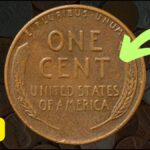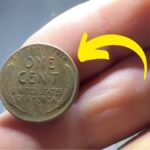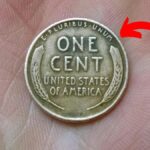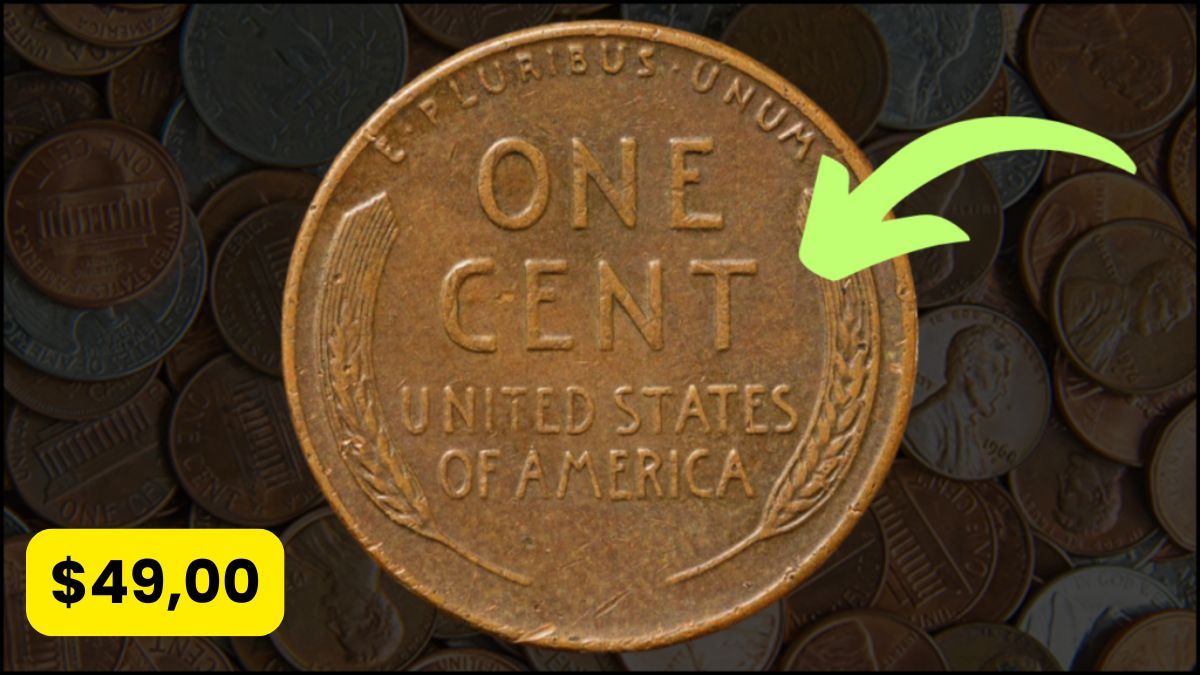Lincoln Wheat Penny Valued at $120 Million: In the realm of rare coin collecting, an extraordinary story has emerged that captures the imagination of both seasoned collectors and casual observers alike. A Lincoln Wheat Penny, potentially worth an astounding $120 million, may still be circulating among everyday pocket change. This remarkable possibility has transformed the humble penny from an often-overlooked piece of currency into the subject of one of numismatics’ most intriguing treasure hunts.
A Century-Old Legacy
The story of the Lincoln Wheat Penny begins in 1909, marking a significant milestone in American coinage history. Created to commemorate the centennial of President Abraham Lincoln’s birth, this coin represented a departure from traditional American currency design. For the first time, a real historical figure, rather than the symbolic Lady Liberty, graced a circulating American coin.
Design and Artistry
Victor David Brenner, the talented sculptor commissioned for this historic project, created a design that would become iconic in American numismatics. The obverse features Lincoln’s dignified profile, while the reverse showcases two elegant wheat stalks framing the denomination. This design, both simple and symbolic, remained in production until 1958, making it one of the longest-running coin designs in U.S. history.
The Making of a Multi-Million Dollar Coin
The extraordinary valuation of $120 million for a single penny stems from a perfect convergence of factors that make certain specimens incredibly rare and desirable to collectors. Unlike common wheat pennies that might be worth only a few cents, these exceptional examples represent unique moments in American minting history.
The Impact of Wartime Production
World War II played a crucial role in creating some of the most valuable wheat pennies. In 1943, the war effort’s demand for copper led to a significant change in penny production. The U.S. Mint began producing steel pennies to conserve copper for military purposes. However, a small number of copper planchets from 1942 were accidentally mixed into the 1943 production run, creating some of the most valuable error coins in American numismatic history.
Understanding Mint Marks and Rarity
The location where a penny was minted can significantly impact its value. Each mint facility marked its coins with distinct identifiers: ‘D’ for Denver, ‘S’ for San Francisco, while Philadelphia-minted coins carried no mark. The 1909-S VDB penny, bearing both the San Francisco mint mark and the designer’s initials, represents one of the most sought-after variations in the series.
The Science of Error Coins
Minting errors, while considered manufacturing defects in their time, can create coins of extraordinary value today. Double-die errors, where design elements appear duplicated due to misaligned dies, represent some of the most valuable variations. The 1955 Double Die penny stands as a testament to how such mistakes can transform an ordinary coin into a prized collector’s item.
Preservation and Condition Factors
The condition of a rare penny plays a crucial role in determining its value. Professional numismatists use a standardized grading system to evaluate coins based on several factors, including wear patterns, strike quality, and overall preservation. Even small differences in condition can result in significant variations in value, particularly for rare dates and varieties.
The Art of Authentication
For those fortunate enough to discover a potentially valuable Wheat Penny, proper authentication becomes crucial. Professional numismatists employ various techniques to verify a coin’s authenticity, including detailed visual examination, metal composition testing, and comparison with known genuine specimens. This process requires expertise and specialized equipment to ensure accurate evaluation.
The Modern Treasure Hunt
The possibility that a $120 million penny remains in circulation has sparked a nationwide search that continues today. While the odds of finding such a valuable specimen may seem remote, the search has led to numerous discoveries of other valuable Wheat Pennies. This ongoing treasure hunt has also fostered a greater appreciation for numismatics and American history among the general public.
Digital Age Documentation
Today’s technology has transformed how collectors research and authenticate rare coins. Online databases and communities provide valuable resources for identifying potentially valuable specimens. However, digital documentation has also increased awareness of rare coins, making new discoveries both more accessible to verify and more challenging to find.
The Investment Perspective
While the search for the $120 million penny continues, the broader market for Wheat Pennies remains robust. Collectors and investors recognize these coins not only for their potential financial value but also for their historical significance. As time passes, the surviving population of Wheat Pennies continues to decrease, potentially making today’s common specimens tomorrow’s rarities.
Conservation and Proper Handling
For those who believe they may have discovered a valuable Wheat Penny, proper handling and storage become essential considerations. Coins should never be cleaned with abrasive materials or chemicals, as improper cleaning can permanently damage their surfaces and drastically reduce their worth. Professional grading services provide both authentication and protective housing for valuable coins.
Future Prospects
The story of the $120 million Lincoln Wheat Penny represents more than just a search for a valuable coin. It embodies the enduring appeal of numismatics and the excitement of discovery that drives collectors and enthusiasts. While finding such an extraordinary specimen may be unlikely, the hunt has encouraged many to learn about coin collecting and American history.
Whether motivated by the possibility of finding a fortune or simply enjoying the historical connection these coins provide, the legacy of the Lincoln Wheat Penny continues to captivate new generations of collectors and history enthusiasts. As we continue to use and encounter these historic coins, each penny presents an opportunity for discovery, reminding us that sometimes the most valuable treasures may be hiding in plain sight. The ongoing search for this legendary coin serves as a testament to the enduring fascination with numismatic history and the potential for extraordinary discoveries in ordinary places.
Disclaimer
This article is provided for informational and educational purposes only. Coin valuations can fluctuate significantly based on market conditions and expert authentication. The specific coin values mentioned are based on historical data and current market estimates. Always consult with certified numismatic professionals for accurate appraisals. The author and publisher make no guarantees regarding the discovery or value of any coins mentioned.



























